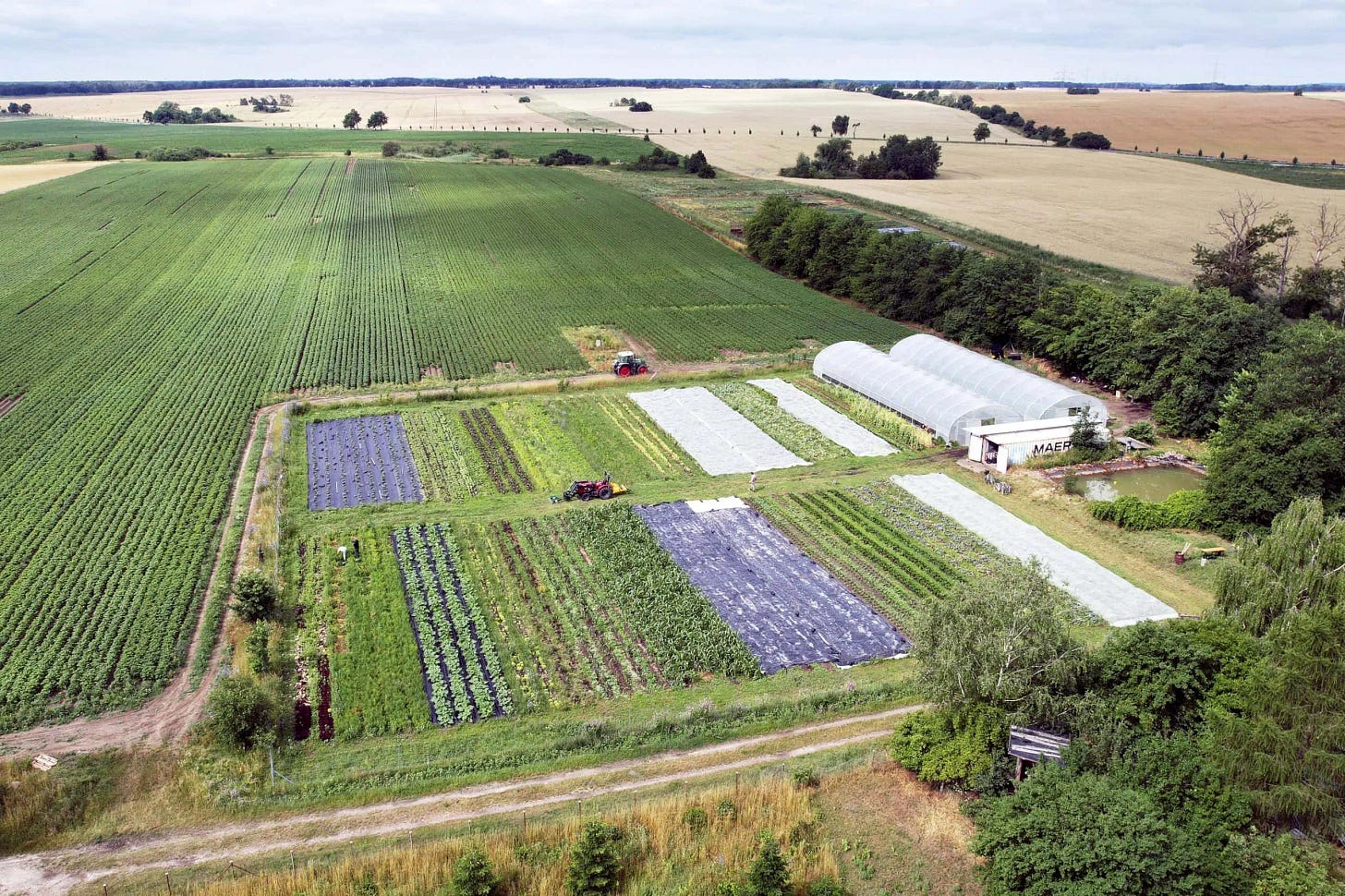Photo by Johannes Plenio on Unsplash
Brands behaving badly
BMW
Courtesy of heycar, BMW i4
The UK government is moving too quickly with its electric vehicle (EV) ambitions, according to BMW boss, Oliver Zipse. He’s voiced concerns that the industry will shrink, because the UK is miles away from having the charging infrastructure needed for the number of EVs likely to be on the road.
He has a point. Speaking from experience, the UK is covered with a patchwork quilt of services owned by oil companies and private equity investors with no obvious quality standards or cohesion. Some services are extremely good others frustratingly poor.
His solution would be to buy time by continuing to manufacture fossil fuel BMWs beyond the self-imposed foolishness of 2030. The EU, by comparison, is currently planning to impose its own ban in 2035; the same year when the UK will officially stop selling fossil fuel vehicles, disguised as new hybrids.
Is Mr Zipse really concerned with the UK car industry contracting, or has it got more to do with the UK being the biggest European export market for BMW gas-guzzlers?
New Automotive, a transport think tank, has recently warned that 2030 would still be too late to meet the interim target set by the UK government’s official climate advisers, the Committee on Climate Change. The agreed target is 32.8 metric tons of CO2, but estimates expect 40% more by 2030.
Given that BMW is happy to brag about a quarter of their new vehicles sold in 2021 being electrified and expecting half to be by 2030, why not support their sales efforts with a charge point network?
It already has deals in place with BP Pulse and is part owner of Ionity with other manufacturers, supporting new electric customers. Why not follow Tesla and install a branded BMW network of charge points and accelerate what they’re already predicting as inevitable?
NHS
In the summer, my GP, Pearl Chin died from a stroke. Deeply sad, I’m sure she was a few years younger than me. Also ironic.
When I first joined the practice after my first wellness assessment, she started her war of attrition to prescribe blood pressure tablets and a statin for my elevated cholesterol.
She listened patiently to my objections and a preference to fight a rearguard action with lifestyle changes, rather than pills for life. Like a dog with a bone, she kept coming back to my father, his two strokes and how much greater the risk was for me. The debate lasted a year.
I now have super regular blood pressure and normal cholesterol. When we last spoke on the phone about my latest blood tests, she called me her model patient. I’m grateful for her persistence.
What I didn’t know was Pearl held the NHS GP contract as an individual doctor. The other GPs in the practice were effectively paid employees, although the paperwork had already been submitted to change this arrangement to a partnership.
The NHS and Clinical Commissioning Groups (CCG), have now decided that there must be a review, despite the practice being well run and profitable.
One option will be to close the practice, the second for NHS North West London to procure a new provider for the continuation of GP services.
The online discussion was frustrating. Polite administrators who aren’t part of the decision making team, were unable to explain why this consultation even needed to happen. Their overriding message was a requirement to review, transparency and the opportunity for a new provider, not just the incumbent, to pitch for the continuation of GP Services. If it even gets to that stage.
It sounded like this process has been working well for US owned Operose, which runs 70 GP surgeries in England caring for 600,000 patients. Except their not caring quite as much as they should. A recent documentary by the BBC’s Panorama revealed that their GP’s surgeries have been diluted with physician associates to save money. The programme claimed that the Operose surgeries are run with six times as many physician associates and half the number of fully qualified GPs as the NHS average.
I need to find a politician with a dodgy moral compass. A Waitrose bag of cash is the going rate these days isn’t it?
Green discovery
Old McDonald had a Tiny Farm
A tiny farm in Steinhöfel, Germany, courtesy of Martin Egbert
Tiny Farms, a German start-up wants one thousand micro-farms by 2030. Most will be less than one hectare (2.5 acres) in size and run by the operators, alone or collectively on a full or part-time basis.
The Berlin startup trains the farmers of tomorrow in its academy, developing cultivation plans, supplying seeds and handling organic certification. They also take care of the all important selling and transporting of produce.
A Tiny Farm of half a hectare can generate a revenue of €60,000. If the farmer purchases all of the modules available to run the farm, they’ll make a profit of about €23,000.
This might not be a full income but it could be a relevant one for a part-time farmer and it helps to solve one of the industry’s biggest problems. The number of people prepared to work in vegetable farming has fallen steeply.
The pilot farm pictured above, employs a Californian political scientist, an Australian artist and writer and another American who trained as a farmer. Perhaps German nationals don’t fancy being Kartoffelbaggers? The travellers live in Berlin and commute to Steinhöfel by train and bike to work the land on a part-time basis, maintaining city jobs when not digging potatoes.
Like any successful franchise, the idea is lots of them. Clusters will spring-up, giving Tiny Farms the volume of high quality, organic produce that it needs to supply supermarkets, caterers, restaurants or schools within a maximum radius of 100 kilometers.
This is bio intensive farming which relies on compost, green manure and clever crop rotation. Moisture and nutrients remain bound to the soil, which also helps to hold on to the CO2. It’s efficient, using 50-75% less land and 95% less energy than conventional farming methods.
Be happy
The sounds of forests
For a while, I used to listen to the sound of a busy coffee shop, when working anywhere but in one. Some of my most productive time, was spent in a Boston Tea Party caff on the Cheltenham Road in Bristol every Friday and I wanted to bottle it.
I’d got into a routine with my children which I continue to reminisce about. After dropping them off at respective schools, catching conversations and acknowledging instructions, I’d reward myself with a handsome breakfast and five hours of focused writing. There’s nothing better with a break in concentration than to stare at other people’s lives on nearby tables.
Today, I’m currently listening to Bitza Nature Park, close to the centre of Moscow, recorded by Julie Kalichineva, courtesy of Tree.fm.
A similar idea to the coffee shop ambience, but more effort required and more personal. It’s a collection of forest sounds, recorded by people who’ve visited them. Each recording is accompanied with a photo. It’s amazing how different some sound with their accompanying wildlife choruses . More arresting still, is how similar some are. The forests in Moscow and Istanbul sound just like the one in Wokingham, Berkshire, where we used to walk Pogo.
Small world.
Greg Isenberg asks some questions
I don’t know this guy either? He’s some successful software geek, according to his profile, more here.
He recently asked a billionaire, a maths professor and a 99 year old man what self-reflection questions they ask themselves.
Here are a few of the questions which I liked, but nearly always avoid answering:
How will being anxious about this serve me?
Am I really trying my best or am I just telling myself I am?
How do I want my life to be different in one year?
Would my 15 year old self think I am the coolest?
What is it that I can think of, read, watch, listen and talk about for hours without tiring?






This was not time wasted!